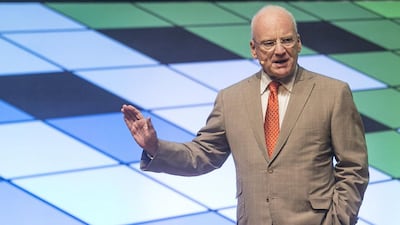ABU DHABI // An Emirati cyber security researcher is calling on academic institutions to play a greater role in researching potential threats to the UAE.
Mohammed bin Haider Almarashda, a doctoral candidate and researcher in cyber security at Bournemouth University in the UK, said academia could provide up-to-date and accurate research to assist the decision-making process at government level, instead of relying mostly on private sector consultants and foreign companies.
“The education sector is the primary area to build the country in various fields, it plays many important and critical roles,” he said.
“It’s also clear that cyber security is vital to keeping governments, private-sector employers, and citizen’s information safe from malicious hacking, state-sponsored economic espionage, and worse.”
He said academia had the ability to play a greater role in cyber-security research “to build a robust and protected framework from any attack”.
“In the UAE there is a varied and vital environment for conducting research, especially in cyber security,” he said.
“Universities need to focus and aim their strategies and research patterns to be parallel with government strategies.
“In the GCC, we lack this type of research in this domain.”
Cyber security was in the spotlight last month during the RSA conference in Abu Dhabi, which featured a keynote address by Richard Clarke, a former cyber-security adviser to the White House.
He warned future attacks on infrastructure, such as desalination and power plants, in the UAE were a distinct possibility. Greater effort would be required to prevent such attacks from occurring.
At a conference in April, Mr Almarashda said the Government had allocated Dh5.5 billion to battle cyber threats and to secure data. He added academia could provide government with research into areas where required, such as current threats, developments in the field, vulnerabilities, prevention and response.
In higher education, the UAE has made efforts to direct youth into careers in technology, which appears to have paid off in terms of knowledge of cyber-security issues. But many other in the GCC were less likely to consider a career in the field, according to a recent poll.
According to survey commissioned by defence firm Raytheon and the US government’s National Cyber Security Alliance, 70 per cent of UAE youth were found to be more confident in their knowledge and education in cyber-related issues than in the rest of the world (65 per cent).
However, 42 per cent of adults in the GCC were less likely to consider a career in the field, compared with 16 per cent globally.
“The GCC has a growing reservoir of talent whose skills can be well utilised in cyber-security positions,” said Shahzad Zafar, Raytheon’s director of cyber security.
esamoglou@thenational.ae

